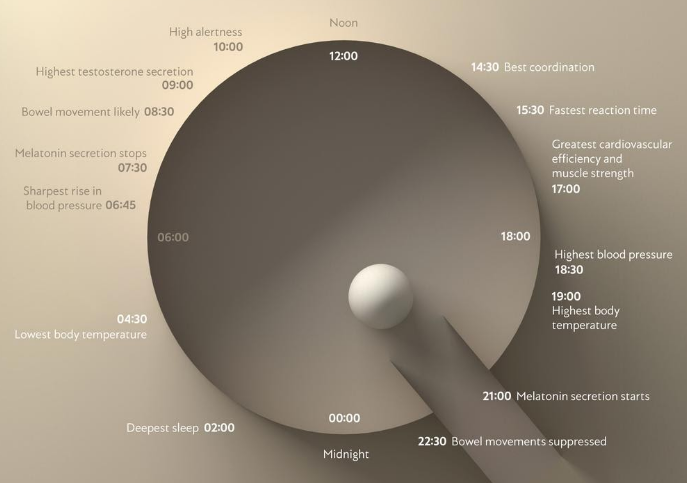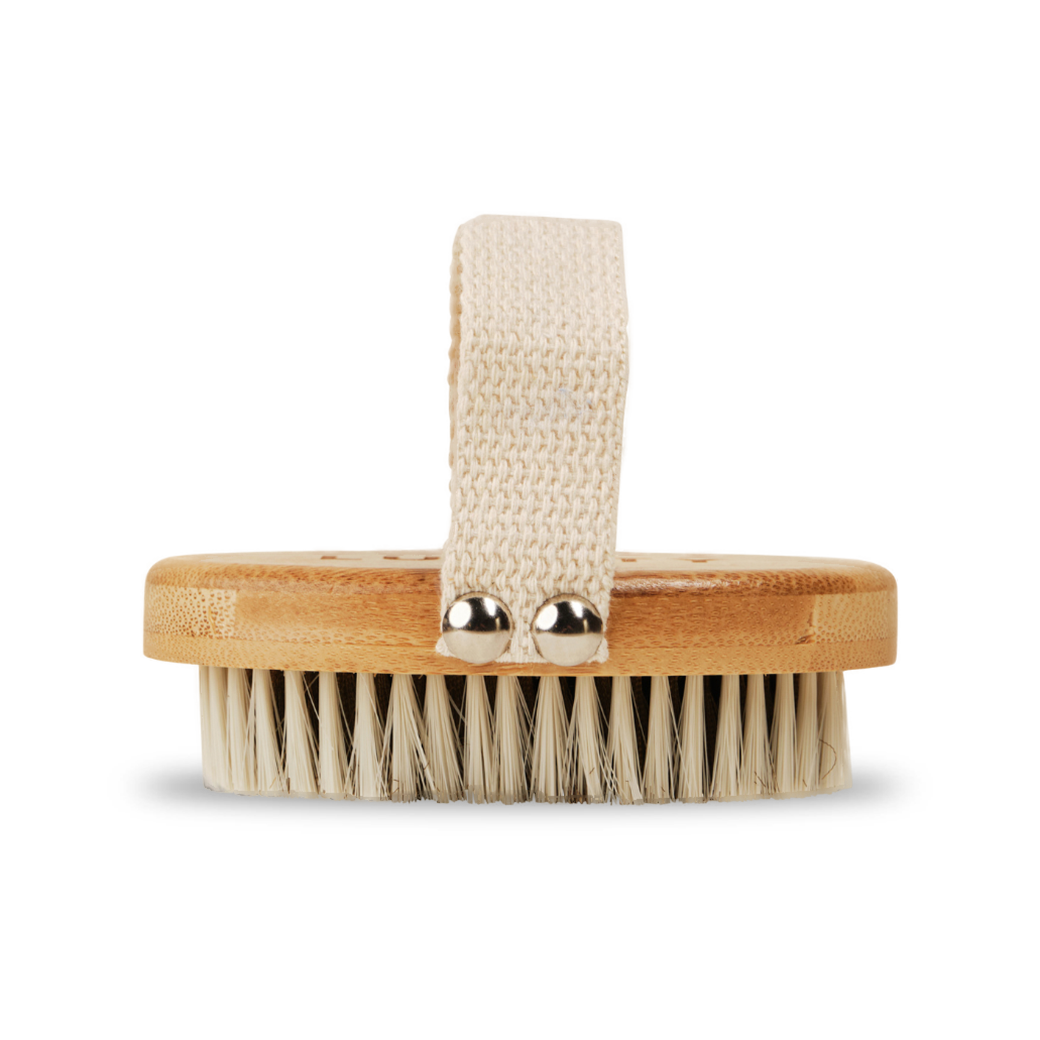
Everything You Need to Know About Circadian Rhythm
What is Circadian Rhythm?
Circadian rhythm is a daily cycle of activity observed in living beings. Circadian rhythm in humans is also known as your internal body clock. It is the natural 24-hour-cycle within your body that tells you, among other things, when to wake up, when to sleep and when to eat. While the circadian rhythm definition can vary slightly it is commonly known as the sleep/wake cycle. Circadian rhythms primarily take their cues from light and dark.
Circadian Rhythm Examples
Circadian rhythms don’t just exist within humans and animals; the 24-hour physiological process happens in plants and fungi too.
Examples of circadian rhythms include:
- temperature control
- eating patterns
- cell regeneration
- sleep cycles
- hormone production
- thirst
Circadian rhythms in plants regulate many things including controlling when they will flower and release their fragrances too.
Circadian Rhythm History
Life has evolved on Earth under a consistent day and night cycle which guides these biorhythms, but when was the circadian rhythm discovered?
They’ve been known to science for centuries with the earliest account of a circadian process being recorded from the 4th century BC in reference to leaves.
Chinese medical texts from the 13th century mention circadian processes in humans and there have since been an abundance of studies on circadian rhythms and biological clocks too.
When Does Circadian Rhythm Develop?
While the circadian rhythm is built-in, in humans it doesn’t develop right away, which is why newborns wake up in the night, need to feed so often and generally leave parents - who have a well-established circadian rhythm - sleep deprived and worn out.
So, when do babies develop circadian rhythm? Although every child is different, babies usually have their biological clock in place by the time they are three or four months old.
Parents can help babies establish their circadian rhythm by engaging them in a regular routine, exposing them to plenty of natural light, creating a soothing bedtime regime and ensuring they sleep in a darkened room.
It’s clear then that your circadian rhythm as a child is hugely influenced by who is caring for you. But is circadian rhythm genetic? Genes certainly play a part and you may be born with a predisposition to waking up early or needing more sleep, but for the most part circadian rhythms can be altered by changing life circumstances, such as exposing yourself to more natural light and creating regular morning and night-time routines.

What Hormones Control Circadian Rhythm?
There are a number of hormones which are associated with circadian rhythm and sleep. The two main ones are melatonin and cortisol.
Melatonin is released when there are lower levels of blue light, which happens as the evening gets dark. Melatonin levels also have a seasonal rhythm, so more is released in the winter months.
Cortisol levels are the opposite and are higher in the morning and deplete as the day goes on, ready for sleepy melatonin to take over.
Cortisol helps provide energy, so it gets us out of bed in the morning and keeps us bright eyed and bushy tailed.
What is My Circadian Rhythm?
Our internal body clocks are not all identical which means we don’t all get hungry or sleepy at the exact same times. Some people have a faster paced rhythm than the 24-hour cycle and are referred to as morning people, and others are a little slower and may be known as night owls. If you want to know how to track your circadian rhythm, there are some simple things you can do.
Our bodies are historically used to waking and sleeping with the sun and in a simpler era when there were no clocks and electronic devices to shift this, you would more naturally fall into the right rhythm for you.
So, if you’re trying to track your circadian rhythm you need to start listening to your body without so much external noise.
Resetting your circadian rhythm won’t happen overnight, but doing things like waking up and going to bed at the same time every day, switching off blue light emitting devices a couple of hours before bedtime, curbing late night snacking and establishing a calming bedtime routine will go a long way to allowing your body to show you it’s natural circadian rhythm.
Why is Your Circadian Rhythm Important?
There are a number of factors which can disrupt your circadian rhythm, from shift work to jet lag and while a few late nights or midnight snacks won’t make much of a difference in the long run, chronic disruption of the body clock can be potentially damaging to your health.
Not only can your mood take a turn, but an out of whack circadian rhythm has been associated with obesity, diabetes and increased risk of cardiovascular disease.
An in sync circadian rhythm benefits your body in so many ways, not least because quality sleep is imperative to good health.
When it comes to circadian rhythm pros and cons the latter column would be empty!

Do I Have a Circadian Rhythm Disorder?
There are a number of factors which can cause a circadian rhythm disorder, from shift work and jet lag to pregnancy and mental health problems. The menopause and medical conditions such as Alzheimer’s and Parkinson’s can also cause circadian rhythm disorders.
People with these body clock disorders may find they have these symptoms:
- difficulty falling asleep
- difficulty staying asleep
- not feeling refreshed after sleep
- sleepy in the daytime
- poor concentration
- headaches
- stomach issues
- decreased productivity and performance
In most cases you can be treated for your circadian rhythm disorder and a doctor can help you find the right treatment.
To work out how to find your circadian rhythm and get it back on track a health care professional may suggest:
- blue light therapy - where your rhythm is reset with the help of a bright light each day.
- chronotherapy - your bedtime will be adjusted slightly each night until it gets to the time you want.
- sleep therapy - bedtime is the focus of this therapy where changes are made to your sleeping environments and night-time regime.
- lifestyle changes - your diet, light exposure, alcohol intake, naps and the way you live your life in general will be analysed to ensure it’s conducive to a healthy circadian rhythm.
- medication - your sleep/wake cycle can also be adjusted with the help of melatonin, stimulants and even hypnosis.
How to Fix My Circadian Rhythm
When it comes to learning how to reset your circadian rhythm it really depends on just how disrupted it has become in the first place.
For some people it may be so skewed that they need professional help using some of the treatments listed above, but for many you can reset and learn how to control circadian rhythm by doing the following:
- turn off blue light emitting devices a couple of hours before bedtime
- eat your meals within a 12-hour window e.g. 7am breakfast and your dinner are finished by 7pm
- wake up at the same time every day, regardless of if it’s a weekend
- go to bed at the same time most nights
- get plenty of natural light in the daytime
- create a darkened and calming bedroom environment
- limit alcohol intake
- reduce caffeine consumption, especially after 12pm
- reduce stress
Once you have your body clock back on track it’s easier to maintain a regular circadian rhythm. It’s ok to veer from the natural path once in a while. Fear of disrupting your circadian rhythm certainly shouldn’t stop you from going on holiday or from enjoying a late-night party.
Just ensure you get back to the body clock basics as soon as you can.
And of course, there are times when you simply can’t help messing up your internal clock, whether it’s from a lengthy stint of shift work or jet lag.
In those cases, you will likely be asking again, how do you change your circadian rhythm? And also, how long does it take to reset your circadian rhythm?
For some people it’s a matter of days but for others it can be a lengthier process. The key is to stick with your plan and be patient. Even if you have to do it gradually, it will be worth it in the long run.

How Does Light Affect Circadian Rhythms?
Daylight is the main cue which affects circadian rhythms. The body clock is synced by the 24-hour light-dark cycle so you need to have daylight for your body to know it’s time to get up. Light is also a stimulant which can boost alertness and performance.
There are cells within the eye which detect light and transmit this information to the parts of the brain which regulate circadian rhythm.
The cells react differently depending on the wavelengths of light. The sun’s light is high in blue wavelength content and informs the brain that it’s daytime so that it knows to be awake and alert.
If you’re not getting enough natural light or you’re working shifts which mean you want to emulate night-time when it’s daytime, then LED light technology can essentially fake it.
They can provide the correct amount of the right type of light at the appropriate time of day.
Before bed you want to have as little blue light as possible - hence turning off blue light emitting devices. This encourages the release of melatonin which is the hormone that tells the brain it’s time for bed.
On the other hand, cortisol release is boosted by blue light. This hormone makes you more alert. Just note regular, too high levels of the stress hormone cortisol isn’t good for your body.
The Best Circadian Rhythm Diet
Food is also an important factor when it comes to circadian rhythm. But not just what you eat, but when you eat it.
Eating processed foods at all hours of the day will not only negatively impact your waistline but your sleep, your energy levels and your overall health.
The best diet to support your circadian rhythm is a healthy, balanced one loaded with nutritious fruits and vegetables, whole grains, fish and lean proteins all eaten within a 12-hour window.
This means if you have your breakfast at 7am you should be finished with your last meal by 7pm. This ensures your body isn’t busy digesting food when it should be repairing and restoring your cells while you sleep.

How to Do Circadian Rhythm Fasting
Circadian Rhythm Fasting is also known as Intermittent Fasting. This approach sees people restrict all their meals to within an 8-10-hour time period, so they fast for between 14-16 hours. This is normally done overnight and often means they skip breakfast.
An example of Circadian Rhythm Fasting would be to have your first meal at 12pm and your last is finished by 8pm. You then wouldn’t eat anything until 12pm the following day again.
This way of eating, combined with a healthy diet, has been shown to be effective at weight loss and for improving sleep. But still the best approach to food is to ensure you’re eating a healthy, balanced diet, taking note of portion control and ensuring you’re not consuming more calories than you are burning.
What Vitamins Help Circadian Rhythm?
To optimise your circadian rhythm, consider our Morning & Night Female Supplements which contain the vitamins and minerals needed to support your body’s 24-hour-cycle.















